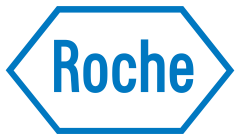The renewed commitment will provide continued preventative (prophylactic) treatment to as many as 1,000 people with haemophilia A in locations where there is little to no access to haemophilia treatment

Roche announced that it has extended its commitment to the World Federation of Hemophilia (WFH) Humanitarian Aid Program until the end of 2028. Roche’s prophylactic treatment will be provided to the WFH Humanitarian Aid Program to continue to treat as many as 1,000 people with haemophilia A in locations where there is little to no access to treatment. The partnership, which was originally formed by Roche and the WFH in February 2019, marked the first time that patients in developing countries had received access to a prophylactic treatment. The donated treatment has since benefited more than 940 people across 30 countries.
“Our renewed commitment will allow us to continue to help people with haemophilia A most in need,” said Bill Anderson, CEO Roche Pharmaceuticals. “We are proud to be recognised by the WFH as a Visionary Contributor of the Program and are delighted to announce that our commitment to the WFH Humanitarian Aid Program has been extended until 2028.”
"Last year was a record year for the WFH Humanitarian Aid Program, which continues to make life-changing treatment accessible for those who need it most,” said Cesar Garrido, WFH President. "With Roche’s continued support, we will be able to continue the important work that the Humanitarian Aid Program does, giving people with bleeding disorders the hope of leading a normal life through prophylactic treatment."
Most people with bleeding disorders in developing countries have no access to diagnosis, treatment and care, which significantly affects their health, quality of life and life expectancy. Access to prophylactic treatment – the standard of care for haemophilia A to prevent bleeds in most of the developed world – is particularly restricted in developing countries, with the limited healthcare resources reserved for emergency situations and acute bleeds. In some developing countries, low dose prophylaxis has been developed as a solution to provide better care for those with haemophilia,4 although this does not provide the standard of care seen with higher dose prophylaxis regimens, considered the ‘gold standard’.
People with severe haemophilia in these countries often do not survive to adulthood because they are unable to access the treatment they critically need. For those who do, life often entails severe disability, isolation and chronic pain.
The WFH Humanitarian Aid Program is a landmark initiative leading the effort to help address the lack of access to care and treatment by providing much-needed support for people with inherited bleeding disorders in developing countries. So far, more than 22,000 people with haemophilia in over 112 countries have been treated with prophylactic and on-demand treatment thanks to the WFH Humanitarian Aid Program, with over 2,000 receiving prophylactic treatment.

Subscribe To Our Newsletter & Stay Updated